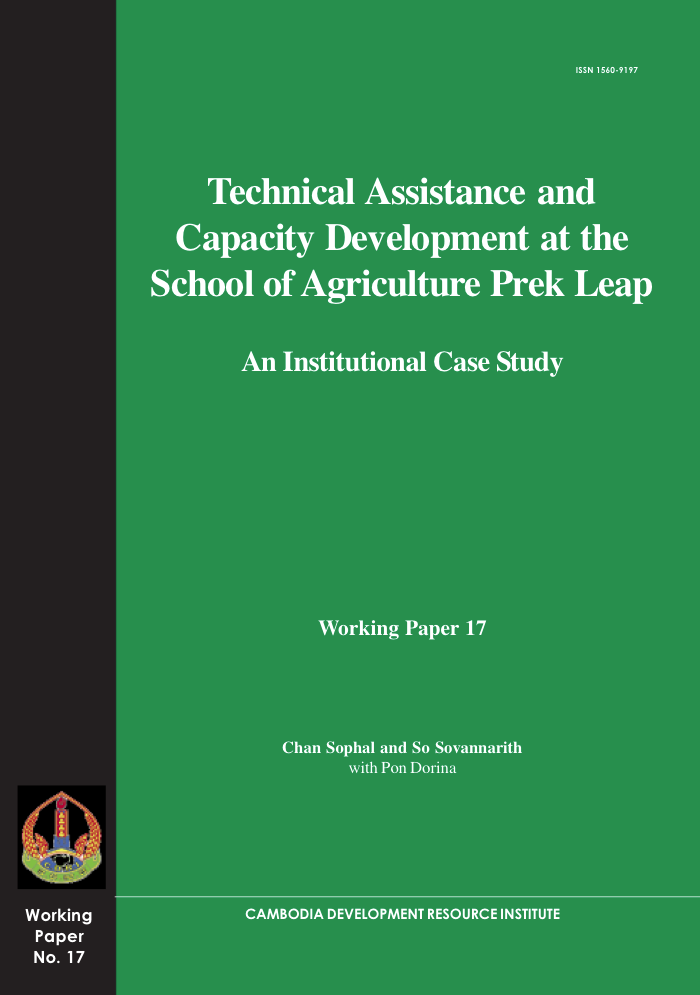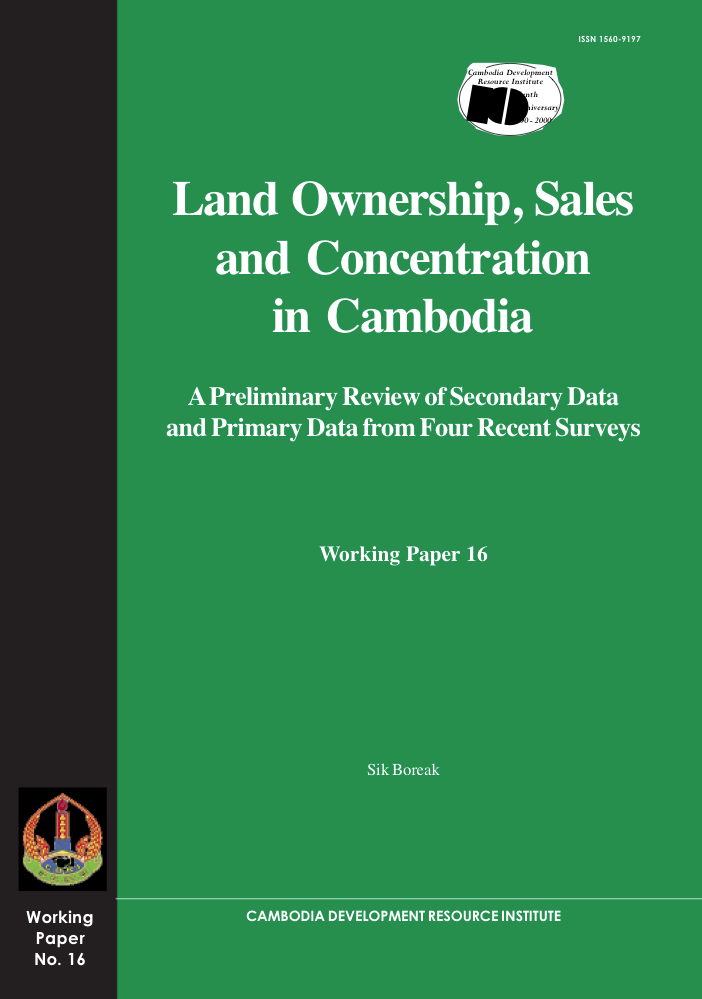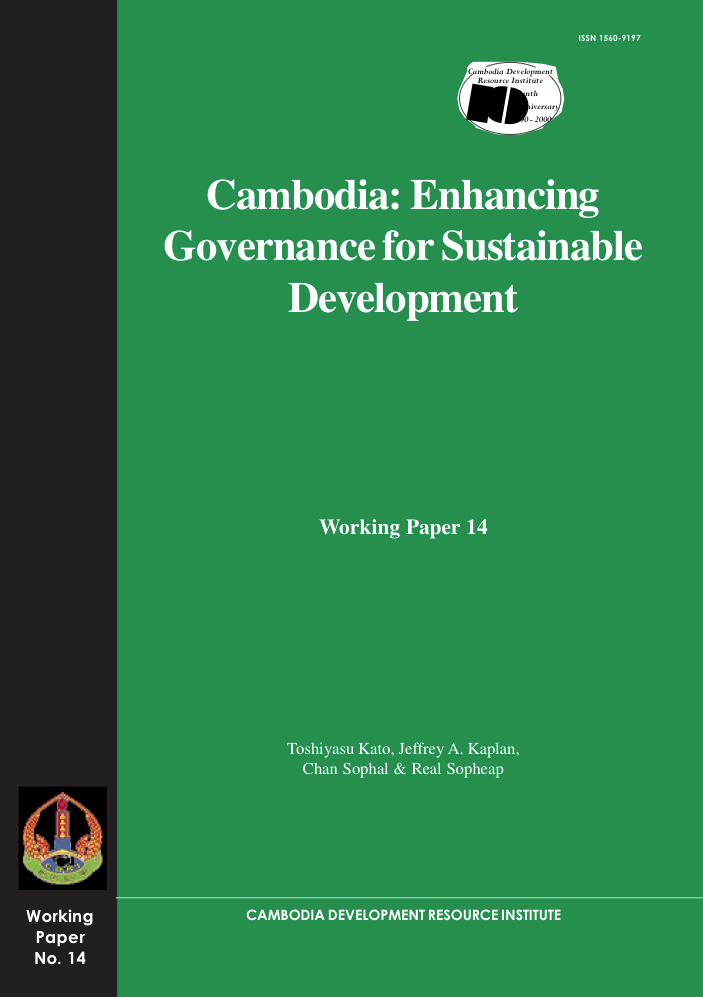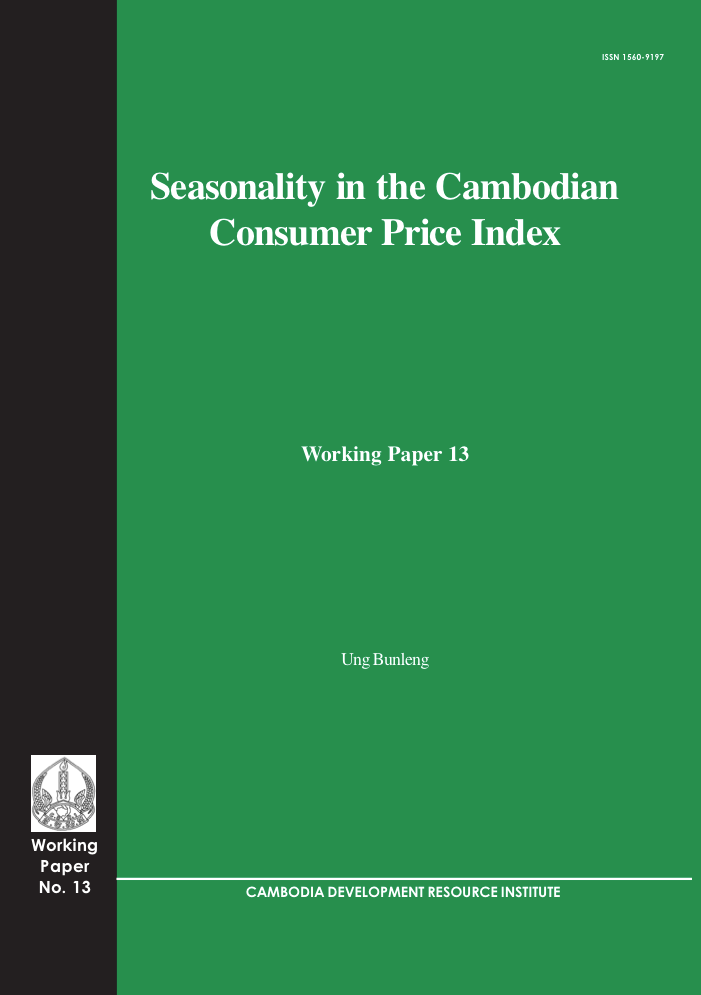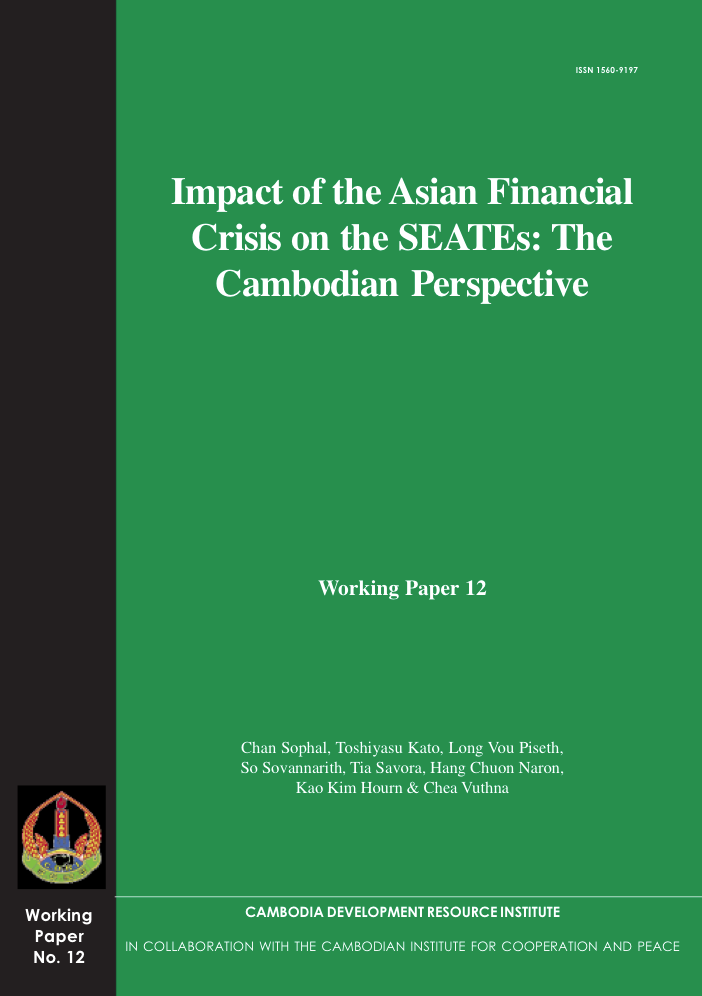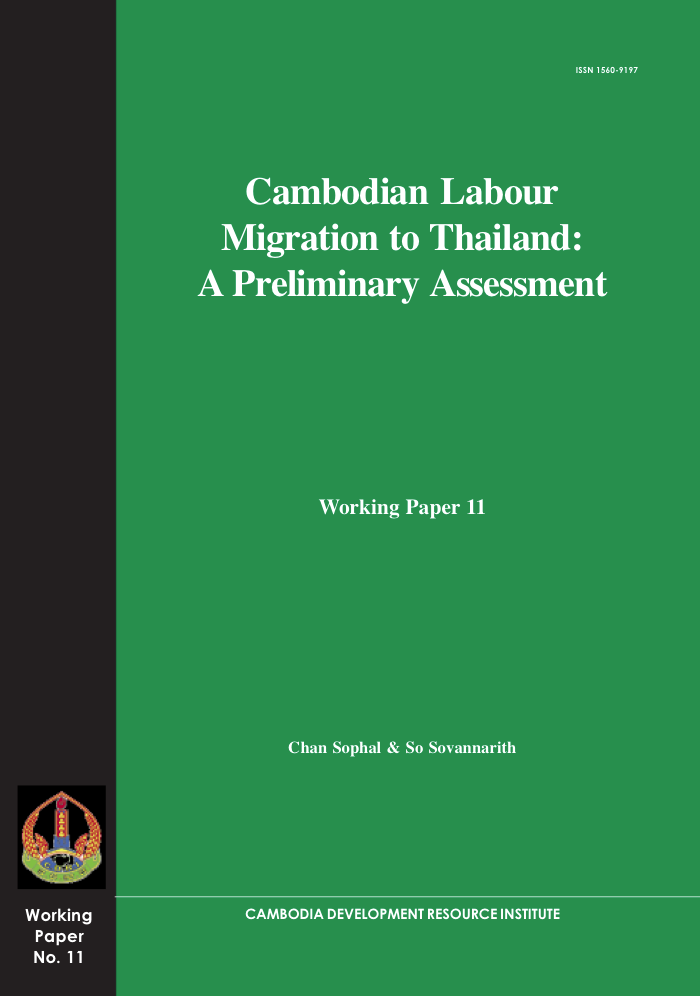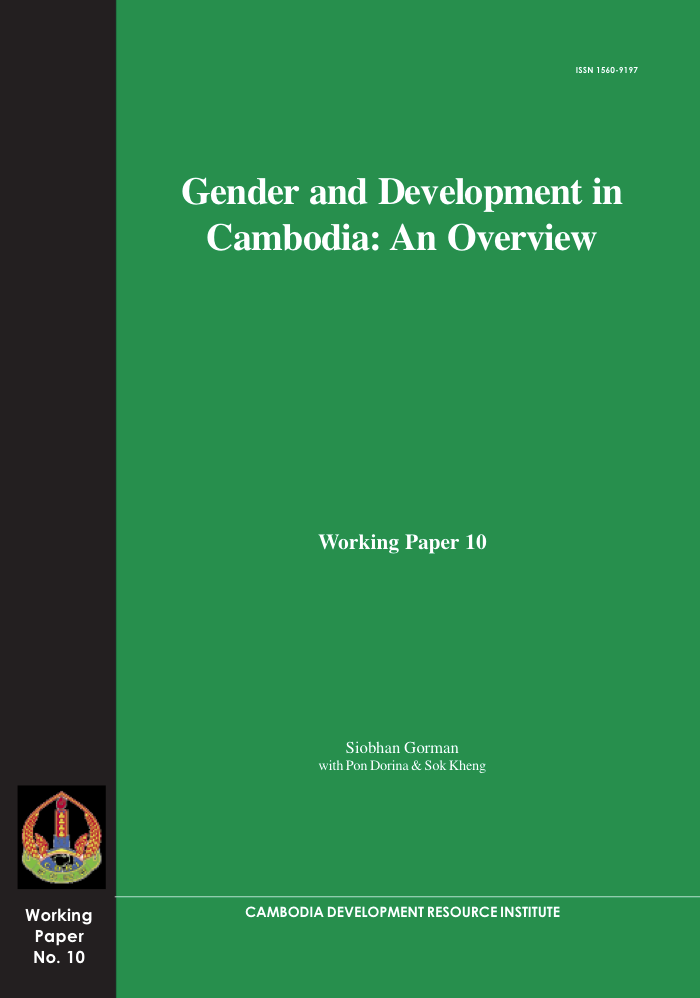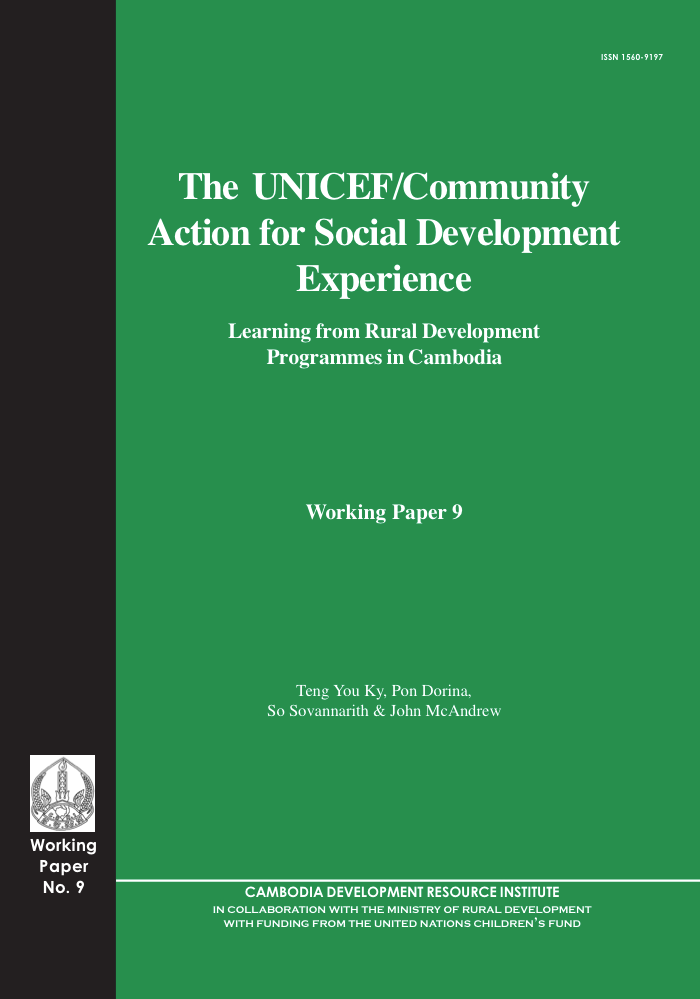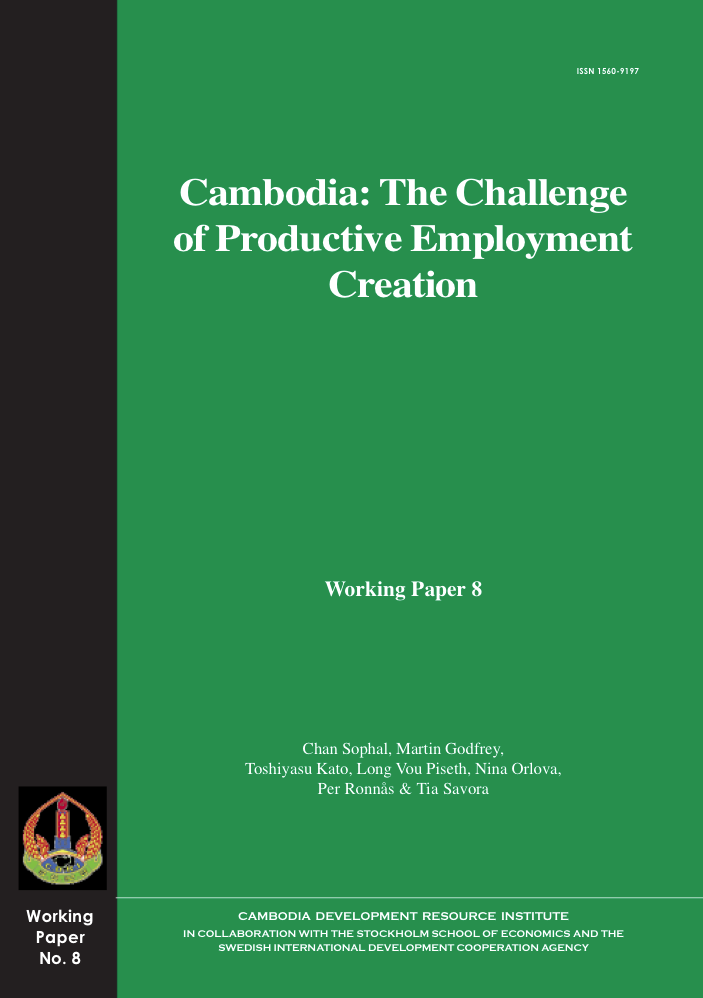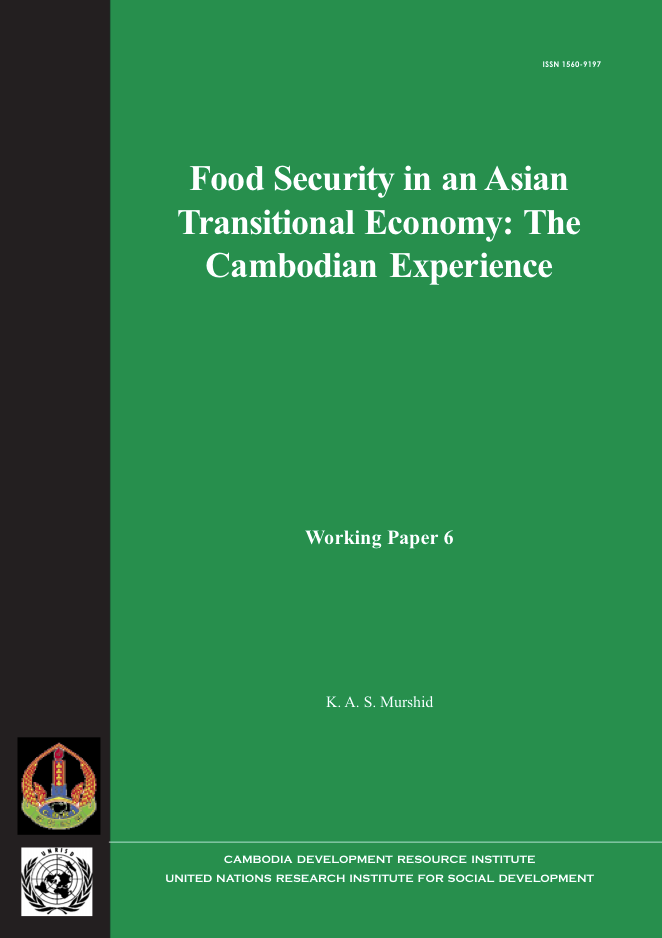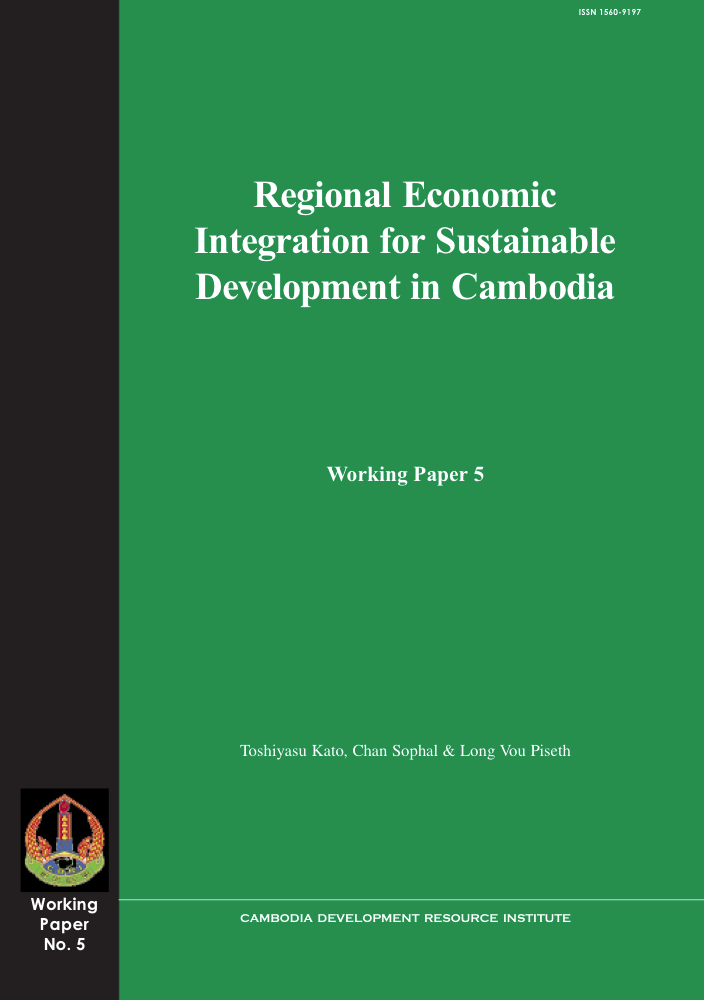Land Ownership, Sales and Concentration in Cambodia
Land is the most important productive asset in agrarian societies such as Cambodia’s. Throughout Cambodian history, land ownership rights have varied with changes in government. In the period before French colonisation (pre-1863), when all land belonged to the sovereign, people were freely allowed to till unoccupied land and could cultivate as much as they liked. With French colonisation, a property-rights system was introduced in 1884. After Cambodia gained independence from France in 1953, a Western-style land ownership system continued until […]
Cambodia: Enhancing Good Governance for Sustainable Development
Good governance is critical for Cambodia’s future. Over the last decade, during transition toward liberal democracy and a market economy, Cambodia’s policy-makers, donors and civil society have recognised that strengthening good governance is imperative if Cambodia is to sustain socio-economic development. The current study, which was commissioned by the Asian Development Bank (ADB), considers how to promote good governance for sustainable development in Cambodia. The analysis and findings from the study aim to contribute insights for policy-making by the […]
Seasonality in the Cambodian Consumer Price Index
Preliminary results from a seasonal adjustment of Cambodia’s official consumer price index (CPI) indicate significant seasonality in the series. Although the seasonal factors mirror the country’s main food production cycle, the original series has itself been volatile in recent years, and because of the procedures used in its compilation, it is particularly sensitive to exchange rate fluctuations. The inflationary momentum abated substantially in 1999, with inflation towards the end of the year running at a quarterly annualised rate of 6.6 […]
Cambodian Labour Migration to Thailand: A Preliminary Assessment
The Asian financial crisis induced a decline in overall economic growth and a surge in unemployment in Thailand, Cambodia, Laos and Vietnam. The downturn in the Thai economy has had an adverse impact on thousands of migrant workers, who had been able to take advantage of job opportunities during Thailand’s economic boom. An estimated 82,000 Cambodians were working in Thailand before the crisis—about the same number as the number of workers in the Cambodian garment industry, and about 12 percent […]
Gender and Development in Cambodia: An Overview
This paper highlights the gender gaps in contemporary Cambodian society, and discusses the constraints and underlying attitudes which determine women’s disadvantaged position. As new resources, opportunities and structures are introduced in the course of develop[1]ment in Cambodia, gender differentials are becoming apparent. Underlying assumptions about gender and power relations dictate the way in which new resources are allocated. New and modern inputs are generally accepted to be a “male” domain. In formal education, girls are under-represented at all levels, […]
The UNICEF/Community Action for Social Development Experience: Learning from Rural Development Programmes
This working paper situates the findings of the UNICEF/CASD case study in the context of CDRI Working Paper No. 4, which is a comparative analysis of the joint Cambodia Development Resource Institute/Ministry of Rural Development research project entitled Learning from Rural Development Programmes in Cambodia. The analysis of that Working Paper, and of this one, is structured around four questions: 1) How are benefits distributed? 2) How much has the community assumed ownership of the programme? 3) How can the […]
Cambodia: The Challenge of Productive Employment Creation
Economic growth in Cambodia came to an abrupt halt in 1997 as the domestic political crisis and the external financial crisis took their toll. However, Cambodia has been comparatively mildly affected by the Asian crisis and, provided that political stability can be achieved, there are good chances that the economic decline in 1997 will become little more than a parenthesis. A more fundamental development challenge facing the country is the very rapid increase in the labour force as the large […]

